- Home
- Sherrilyn Kenyon
What Dreams May Come (Berkley Sensation) Page 11
What Dreams May Come (Berkley Sensation) Read online
Page 11
That was his plan. But as he stepped out of the elevator, a wave of dizziness assaulted him. He hadn’t eaten since yesterday morning. And he’d been here all night.
In the hallway a sign caught his eye, giving directions to the public parts of the hospital, including the cafeteria. He was in agony to get back to Miranda. But he knew the demands of his own body. He couldn’t keep going without fuel. And he might do her more harm than good in his present condition.
Maybe he’d better stuff a sandwich into his mouth.
In the cafeteria he grabbed a turkey sandwich and a carton of milk and started eating while he was still waiting in the line at the cash register.
Miranda stopped at the edge of the camp.
“It looks so familiar,” she said aloud, because the sound of her own voice helped fill the empty landscape. “But now I remember why.”
A month ago she had led a group of computer executives on an expedition into a wilderness area near Eureka.
The trip had been a company team-building exercise. She’d been responsible for the woodcraft and safety on the trip. She’d taught the middle-aged executives how to pitch two-man tents, cook all their food over the campfire, and build an outdoor shower and latrine. She’d also led them on rock-climbing expeditions.
Unfortunately, an acne-scarred jerk named Buck Holden from the company personnel office had been in charge of the psychological aspects of the group experience.
He’d corralled her into late-night planning sessions when she would have preferred getting the sleep she needed. And while they’d had the camp to themselves, he’d made a pass at her.
She’d tried to be firm and professional when she’d said that she didn’t want a personal relationship.
But Buck had taken the rejection personally. And his behavior toward her had strained the atmosphere in the camp.
She’d come out of the experience feeling emotionally bruised, and she’d turned down another corporate assignment.
As she stood at the edge of the clearing, a sound made her head whip to the right. One of the tents rocked gently. Then, inside, she saw the shadow of a man—a man holding a knife in the air.
“Buck?” she called out.
He didn’t answer, and her whole body tensed. Was it Buck doing this? Had he figured out a way to get back at her? Had he run her off the road?
Or was it the other way around? She’d been thinking about Buck Holden. Did that mean she had dragged him into this dream?
While she was wrapping her head around the possibility, the shadow on the tent wall changed. She had thought it was a man—holding a knife. But now she saw a bear with its jaw open.
She blinked, rooted in place as the image changed to a woman.
Her pulse pounded as she stared at the tent.
“This isn’t reality,” she whispered. “This is a dream.” But her next thought was hardly comforting. If this was a dream, then anything could happen.
Her eyes fixed on the tent, she took a step back—then another. Once she was out of the clearing, she started running. At first she was running away from the camp. Then she realized she was going in the other direction—coming back again.
Stopping abruptly, she got her bearings, then carefully started away from camp once more. But the same thing happened. Again she was heading back to the clearing. A scream of terror bubbled in her throat. Somehow she held it back.
Caleb had finished half the small meal by the time he started looking for a place to set down his tray. But it was lunchtime, and most of the tables were occupied.
Balancing the tray on a trash can cover, he chugged the carton of milk and gobbled another bite of the sandwich. He was thinking that he might as well finish eating standing up when a flash of color caught his eye.
His gaze zoomed to two women sitting at the other side of the room. One had dyed red hair, a bright shawl, and a purple patterned dress. The other had a similar outfit. But her dress was blue, and she’d let gray creep into her brown hair. They were leaning toward each other, deep in conversation.
He blinked as he stared at his aunt and his mother, feeling the hairs on the back of his neck prickle.
His aunt and his mother! That was no coincidence.
Five
Caleb crossed the room rapidly and set his tray down on the table with a clunk.
Two heads jerked up, their expressions a mixture of concern and wariness.
His aunt stood. His mother looked from her to Caleb.
“Edith, don’t leave.”
His aunt shook her head. “I think the two of you need to talk,” she said stiffly, then turned and walked away.
He and his mother were left staring at each other, as if they were the only two people in the room full of humanity. Silently he took the vacant seat.
“Caleb, I’m so glad you found us,” she said. Her gaze flicked to his jacket sleeve, and she gasped. “What happened to you?”
“It’s just torn. I’m fine,” he snapped. “Tell me what you’re doing here.”
“Aunt Edith thought I should come with her.”
“Why?”
His mother gave one of her shrugs, and he wanted to reach across the table and shake her.
“What did Aunt Edith say?” he pressed.
Loretta Mancuso straightened her shoulders. “She thinks you’re making a mistake sticking your nose in where it doesn’t belong.”
He glared at her. “You’d better explain that.”
When she looked down at her hands, he asked, “Did Miranda’s mother leave her father because you told her about the colonel’s affairs?”
Her head came up, and she looked over her shoulder, then back at him. “What makes you think that?”
“What am I supposed to think?” he asked in a gritty voice. “You won’t give me any information. And neither will . . . the Iron Colonel.”
“Is that what you call him?”
“Sometimes.”
“Stay away from him. And stay away from his daughter.”
“Why? Give me a reason!”
His mother sighed. “All right. We did tell Hilda that her husband was having . . . affairs. She said she could deal with that.”
“Then why did she leave him?”
She struggled through a silent debate, then lowered her voice. “We also found out he was engaged in . . . illegal business practices.”
“Like what?”
His mother kept her gaze steady. “Drug smuggling.”
He felt like he’d been socked in the stomach. “You’re kidding. How could the straight-arrow colonel get involved in that?”
“His import business was in trouble, and he needed a source of cash. I guess he rationalized it somehow. You know—who cares if a bunch of filthy lower-class people get hooked on drugs.
“We told Hilda, and she was going to confront him. But you know how he is. He hates anyone to challenge his authority.”
“Yeah,” Caleb muttered.
“Hilda went home. And we never saw her again.”
He fought to rearrange his thinking. About Mrs. Grove—and about Miranda.
His mother reached across the table and covered his hand with hers. “Caleb, I never talk about your father.”
“We’re talking about Colonel and Mrs. Grove. Don’t change the subject!”
“I have to. I want you to understand something else. You thought your dad left me. Really, he had no choice. He was sent to prison, and when he got out I was relieved that he stayed away from us.”
Caleb was stunned. “Why didn’t you tell me any
of that?”
“I wanted to protect you. I want to protect you now.”
He stared into her anxious face. She was telling him things he’d never known—never considered.
“Where is my father today?” he asked.
“He was a heavy smoker. He died of lung cancer when you were in middle school.”
Caleb took that in, then asked, “And that’s why you were so upset when yo
u caught me smoking with some of my friends?”
“Yes,” she murmured.
“And Dad was the reason you were so strict with me,” he said, letting the theory take form. In a way, he’d known that all along, but the confirmation was important.
“Yes. I was terrified that his genes would be more important than the upbringing I gave you.”
He felt like he’d been stabbed in the stomach with his own chisel. His upbringing hadn’t exactly been conventional. How could it be—when your mom and live-in aunt supported themselves as fortune-tellers. But his mother had been strict with her only child. She’d even sent him to live with his grandfather one summer when she didn’t like the company he was keeping. And now he understood that better.
They were sitting in the hospital where Miranda lay unconscious, and he was learning things about himself and his family that he had never known. It was too much all at once. He barely remembered his father. Would he have visited him in prison if he’d known where to find him? He wasn’t sure. And his mother had never given him that chance.
At the same time he was caught by a sense of urgency. Not about himself, but about Miranda. As he sat here in this crowded cafeteria, he was sure that she needed him, and he had to reach her again.
“I feel better now that I’ve told you,” his mother said, pulling his thoughts back to the hospital cafeteria.
He shifted in his seat. “Yeah.”
“Do you forgive me?” she asked anxiously.
“I understand you better,” he answered. His mother had revealed long-buried family secrets. “I need to think about how I feel,” he answered honestly.
His mother’s face crumpled, and he couldn’t help feeling torn. “Mom, this is a lot for me to digest. And I need to worry about Miranda now,” he said gently.
“What can you do for her?”
He gave her a steady look. “I can help her wake up.”
Her eyes went round. “You mean . . . use your talent?”
“Yes.” He started to say he had already been inside Miranda’s coma dream, then decided to hold that information back. “We’ll talk later,” he said instead.
“Edith said you might try something like that. Please, think about the consequences.”
“I am.”
Her eyes went back to his jacket. “You could get hurt. I think you already got hurt. Making contact with an unconscious person is risky.”
“You’ve done it?” he asked, switching the focus back to her.
She shifted in her seat. “I’m not that talented.”
“Then how do you know?”
“Edith . . . said.”
Edith again. He wanted to ask his mother if she could think for herself. Instead he repeated his offer to talk later, then stood up.
He knew now that she had delayed him from getting back to Miranda. Maybe she had done it on purpose. Maybe that was why she’d suddenly started talking about his father.
As he walked away from the table, terror gripped him. He felt like the world was shifting under him. Like he had one foot on Planet Earth, and one foot in outer space.
He reached for the door, moved to the side of the hall, and stood with his eyes closed, picturing Miranda.
“I’m coming. Hold on. I’m coming,” he whispered.
He imagined her running through the woods. He didn’t know if that was real—or if he was just giving rein to his own overactive imagination.
Fists clenching and unclenching at his sides, he strode up the hall, his gaze darting to the left and right, as he searched for some place he could be alone. When he reached an exterior exit, he stopped abruptly.
Now that he knew his mother and his aunt were looking for him in the hospital, maybe the safest place to do this was his car. Outside, he trotted around the building to the visitor lot.
Fear made his heart pound inside his chest. The need to break through into Miranda’s world was like a terrible pressure building inside him. But he had learned caution—the hard way. So he took the time to glance around the parking area. He didn’t see anyone obviously watching him. He hoped he’d have privacy.
In the backseat he pulled off his ruined jacket and shirt and looked at his arm. The claw marks were fading fast—faster than if he’d gotten them in the real world, he thought. After inspecting the wound, he pulled a sweatshirt from his overnight bag and put it on.
Once he’d changed, he brought out the large cardboard covering that he sometimes put across the front window to keep the sun from blasting the car. On the front was a large picture of sunglasses. On the back, facing him, was a wavy blue-and-green pattern that he’d always thought was relaxing.
After wedging the screen into the window, he slipped behind the wheel, then pushed back his seat so he could stretch out his legs. With the sunscreen and the tinted windows, the atmosphere in the car was dim and restful.
His mother had warned him this could be dangerous. Too bad. He was going into Miranda’s mind—using the quickest route he could. Leaning his seat back, he stared at the blue-and-green pattern in front of him, imagining blue sky and green trees.
A peaceful outdoor scene. But he could feel tension stringing his nerves tight. His tension. And maybe Miranda’s.
As he stared at the blue-and-green screen, he reached into his pocket, finding the ring, closing it into his fist as he sent his thoughts toward the swirling colors. Instantly he felt a little closer to Miranda.
“Let me in, sweetheart,” he murmured. “Whatever is wrong, I’ll help you deal with it,” he promised, hearing the rough quality of his own voice.
When she didn’t answer, his heart started pounding harder.
The design wavered in front of his eyes, and he let them go unfocused, turning the pattern into a green and blue blur.
He felt himself slipping into the colors. It was a strange sensation—as though he were losing himself. His first panicked impulse was to pull back. But he focused on Miranda. She needed him. And the eddy of bright hues was the way to forge a link to her private world.
He wasn’t certain how he knew that. But he was sure it was true.
As he stared at the sunscreen, he felt himself rushing forward again, the way he had the first time he had entered her dream.
But he found out quickly that it still wasn’t going to be easy.
With a groan of mingled pain and protest, he slammed into the familiar rubber wall. This time, he felt the breath whoosh out of his lungs, and he had to struggle to keep his eyes on the blue-and-green pattern.
Now he was sure that something—or someone—was deliberately holding him back. His mother? His aunt? Both of them? Maybe together they had the power.
“Leave me alone!” he growled, sending the words out in a burst of mental energy. The effort drained him, and his body sagged against the seat.
But with his mind, he kept pressing ahead in his silent quest. If he hadn’t wanted it so badly, he knew it would have been impossible.
He kept up the pressure, feeling his muscles and his mind go weak as he fought the force that seemed determined to defeat him.
And finally, finally, with a silent shout of triumph, he pushed into the green-and-blue design.
Only that didn’t signal his success. The pattern had changed to a sticky mass, and he was caught in the middle—the stuff holding fast to his body and oozing around his face.
He felt the air turning to stone in his lungs, but he couldn’t gasp in oxygen past the layer of goop that glued itself to his nose and mouth.
It was like being caught in the middle of a pot of green-and-blue builder’s caulk. But it felt like it was alive—deliberately fighting to hold him there until he died.
And he would die. He knew that now.
Would his own mother kill him? Or had she miscalculated the power needed to keep him away from Miranda?
He wanted to scream at her to let him go. But he couldn’t waste the energy.
So he fought the sticky mass the only way he could, ordering h
is mind to slip and flow through the seams of the pattern, worming his way around the deadly obstruction.
He couldn’t put into words what he was doing. But somehow he did it. Or maybe he was stronger than the force trying to annihilate him.
He dragged his way through the swirl of green and blue and fell gasping onto the riverbank where he had entered the scene before. For long moments, all he could do was lie there dragging in huge drafts of the clean forest air.
He stared up at the sky. It was afternoon at home. And here, too. Always late afternoon. Still, it felt as if he had been in that sticky mass for hours.
Maybe he had, for all he knew.
He was about to call Miranda’s name when a bloodcurdling scream cut through the silence of the forest.
Miranda. Oh, Lord, that was Miranda. In trouble.
Six
Caleb scrambled to his feet and dashed in the direction of the campsite. At least that was where it sounded like the scream had come from.
He broke through the trees and gasped. Miranda was struggling with someone.
A man—it looked like, but his outline was a blur. And the face . . .
At first he thought the face was covered by a hood. As he dashed forward, he saw that wasn’t true. There was a head on the body, but it was blotted out by a dancing blob of shifting lights, like in a television picture where they wanted to hide someone’s identity, so they covered the face on the video with a digital pattern.
On TV the dancing pattern was a bunch of colors. This one was black and shades of gray—matching the sweatshirt and sweatpants the guy was wearing.
No—now the head and clothing were blue and green, the colors shifting and wavering before Caleb’s eyes.
It was like the pattern that he’d used to bring him into Miranda’s dream. And that told him something important. This had as much to do with him as it did with Miranda.
He wanted to shout at the guy to leave her alone. But he couldn’t risk the danger of distracting her.

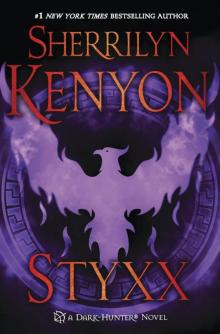 Styxx
Styxx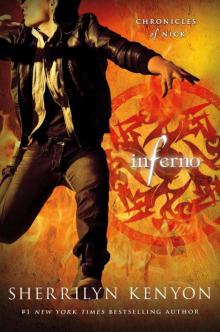 Inferno
Inferno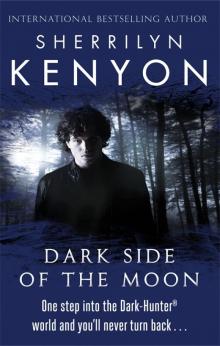 Dark Side of the Moon
Dark Side of the Moon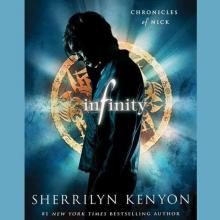 Infinity
Infinity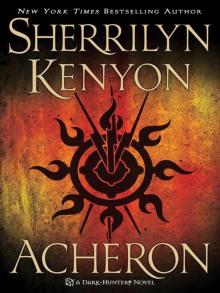 Acheron
Acheron Dead After Dark
Dead After Dark Playing Easy to Get
Playing Easy to Get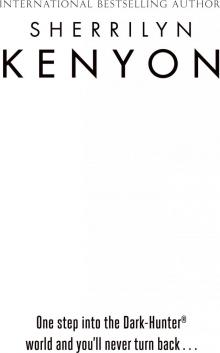 Second Chances
Second Chances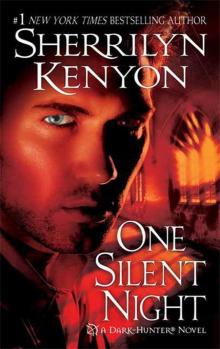 One Silent Night
One Silent Night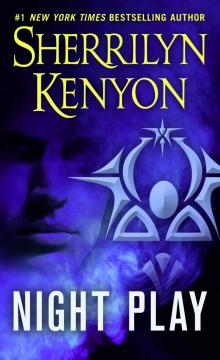 Night Play
Night Play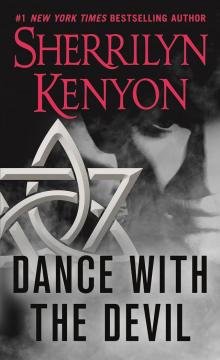 Dance With the Devil
Dance With the Devil Unleash the Night
Unleash the Night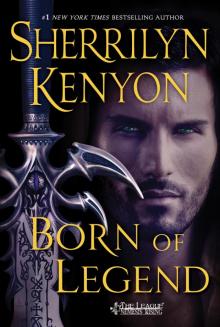 Born of Legend
Born of Legend No Mercy
No Mercy Fire Bound
Fire Bound Seize the Night
Seize the Night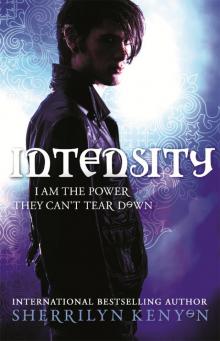 Intensity
Intensity Rise of the Gryphon
Rise of the Gryphon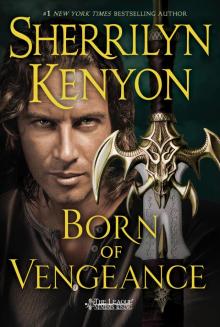 Born of Vengeance
Born of Vengeance Witchlock
Witchlock Retribution
Retribution The Curse
The Curse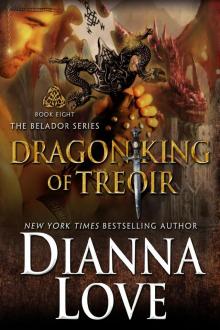 Dragon King of Treoir
Dragon King of Treoir The Dream-Hunter
The Dream-Hunter Cloak & Silence
Cloak & Silence The Guardian
The Guardian Sins of the Night
Sins of the Night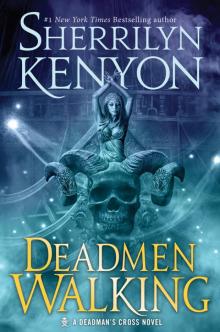 Deadmen Walking
Deadmen Walking Upon the Midnight Clear
Upon the Midnight Clear Dream Chaser
Dream Chaser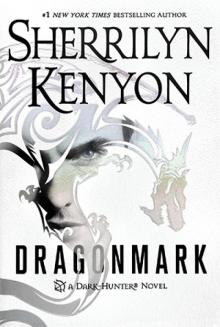 Dragonmark
Dragonmark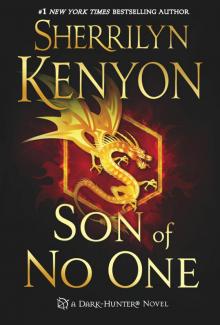 Son of No One
Son of No One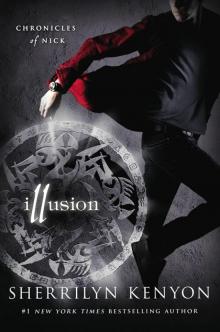 Illusion
Illusion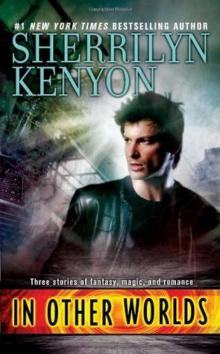 In Other Worlds
In Other Worlds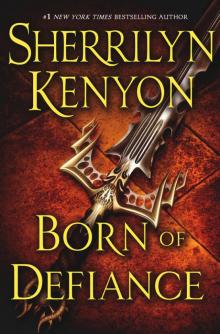 Born of Defiance
Born of Defiance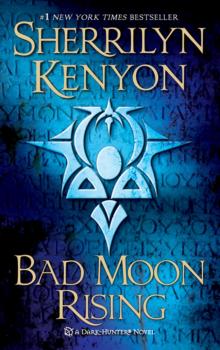 Bad Moon Rising
Bad Moon Rising Born to Be Bad
Born to Be Bad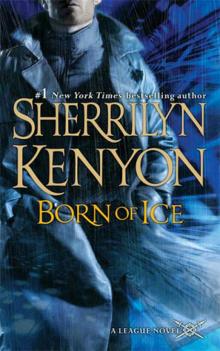 Born of Ice
Born of Ice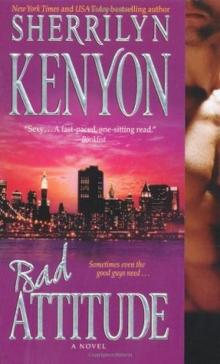 Bad Attitude
Bad Attitude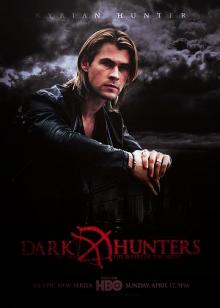 A Dark-Hunter Christmas
A Dark-Hunter Christmas Dream Warrior
Dream Warrior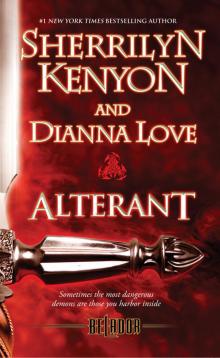 Alterant
Alterant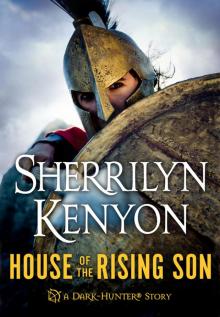 House of the Rising Son
House of the Rising Son Instinct
Instinct Stygian
Stygian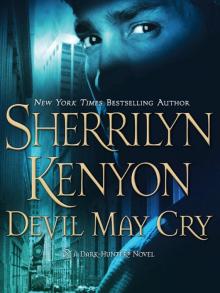 Devil May Cry
Devil May Cry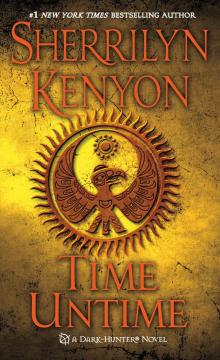 Time Untime
Time Untime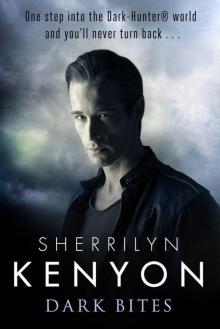 Dark Bites
Dark Bites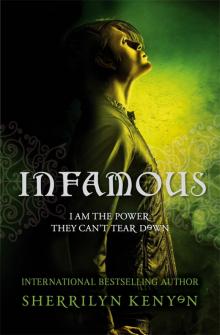 Infamous
Infamous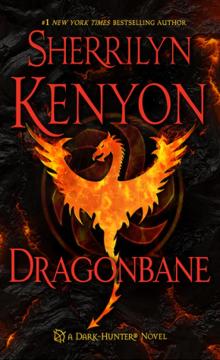 Dragonbane
Dragonbane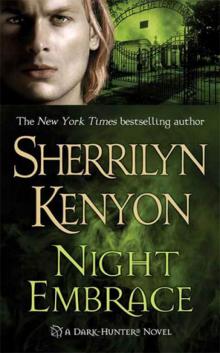 Night Embrace
Night Embrace Kiss of the Night
Kiss of the Night Born of Fire
Born of Fire Invincible
Invincible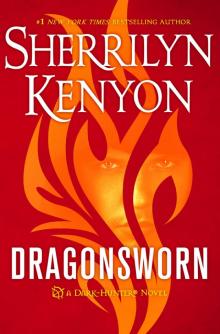 Dragonsworn
Dragonsworn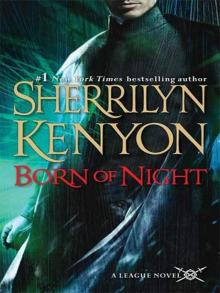 Born of Night
Born of Night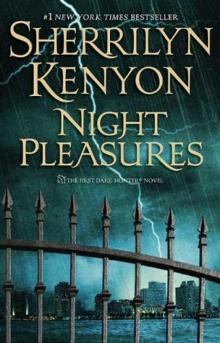 Night Pleasures
Night Pleasures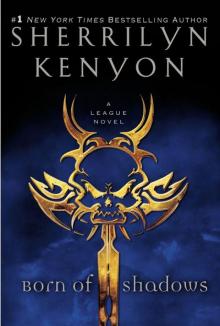 Born of Shadows
Born of Shadows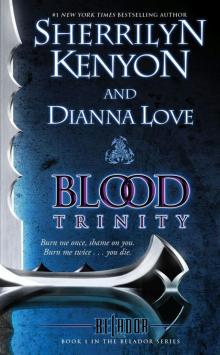 Blood Trinity
Blood Trinity Deadly Promises
Deadly Promises Rogue Belador
Rogue Belador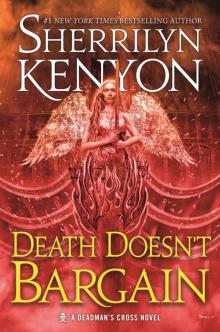 Death Doesn't Bargain
Death Doesn't Bargain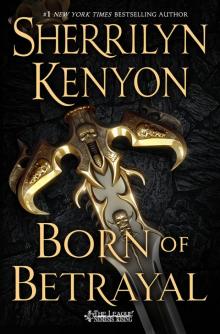 Born of Betrayal
Born of Betrayal At Death's Door (Deadman's Cross Book 3)
At Death's Door (Deadman's Cross Book 3) Belador Cosaint
Belador Cosaint Fire and Ice
Fire and Ice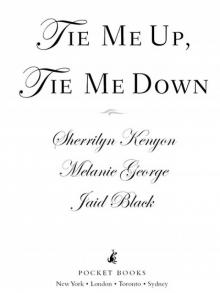 Tie Me Up, Tie Me Down
Tie Me Up, Tie Me Down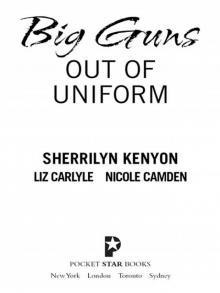 Big Guns Out of Uniform
Big Guns Out of Uniform Silent Truth
Silent Truth Whispered Lies
Whispered Lies Phantom in the Night
Phantom in the Night![[BAD 07] - Silent Truth Read online](http://i1.bookreadfree.com/i/03/17/bad_07_-_silent_truth_preview.jpg) [BAD 07] - Silent Truth
[BAD 07] - Silent Truth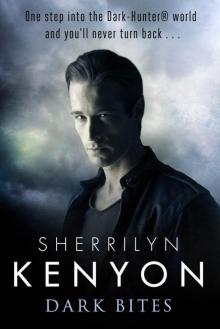 Dark Bites (Dark-Hunter World)
Dark Bites (Dark-Hunter World) Stygian (The Dark-Hunter World Book 28)
Stygian (The Dark-Hunter World Book 28) The League 3: Paradise City
The League 3: Paradise City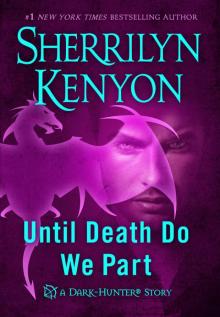 Until Death We Do Part
Until Death We Do Part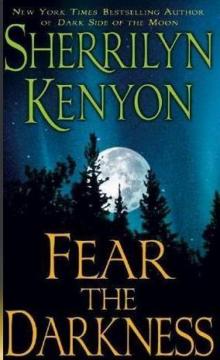 Fear the Darkness
Fear the Darkness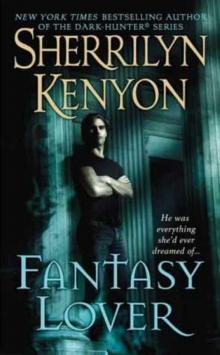 Fantasy Lover
Fantasy Lover![Insurrection [Nevermore] Read online](http://i1.bookreadfree.com/i1/03/30/insurrection_nevermore_preview.jpg) Insurrection [Nevermore]
Insurrection [Nevermore] Winter's Night
Winter's Night Dead After Dark_Shadow of the Moon
Dead After Dark_Shadow of the Moon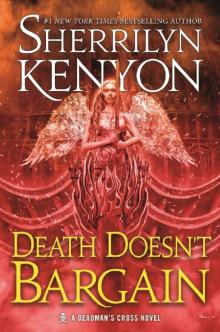 Death Doesn't Bargain: A Deadman's Cross Novel
Death Doesn't Bargain: A Deadman's Cross Novel Winter Born
Winter Born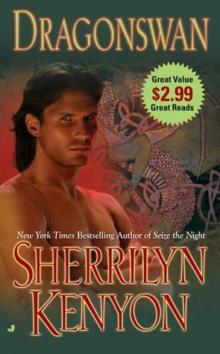 Dragonswan
Dragonswan Rise of the Gryphon (Belador #4)
Rise of the Gryphon (Belador #4)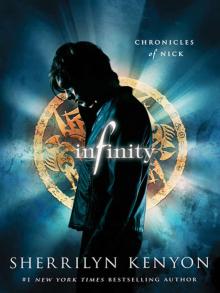 Infinity: Chronicles of Nick
Infinity: Chronicles of Nick The League 1: Born Of The Night
The League 1: Born Of The Night What Dreams May Come (Berkley Sensation)
What Dreams May Come (Berkley Sensation) The Beginning
The Beginning Alterant: Belador Code Series: Book Two
Alterant: Belador Code Series: Book Two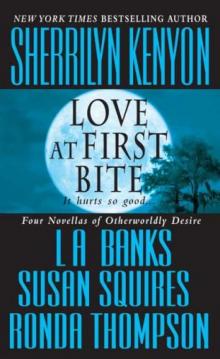 Love At First Bite
Love At First Bite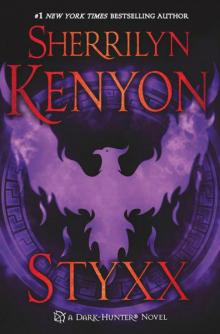 Styxx (DH #33)
Styxx (DH #33)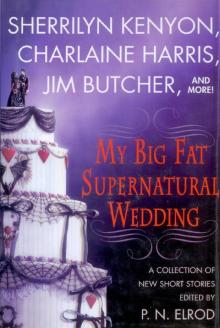 A Hard Day's Night-Searcher
A Hard Day's Night-Searcher Phantom Lover
Phantom Lover Cloak & Silence (The League)
Cloak & Silence (The League) The Curse (Beladors)
The Curse (Beladors)![[Dark Hunter-Were Hunter 2] - Night Play Read online](http://i1.bookreadfree.com/i2/04/08/dark_hunter-were_hunter_2_-_night_play_preview.jpg) [Dark Hunter-Were Hunter 2] - Night Play
[Dark Hunter-Were Hunter 2] - Night Play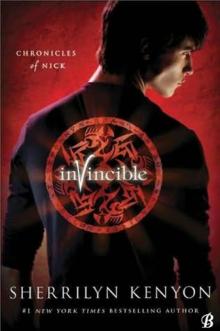 Chronicles of Nick 02 - Invincible
Chronicles of Nick 02 - Invincible Naughty or Nice?
Naughty or Nice?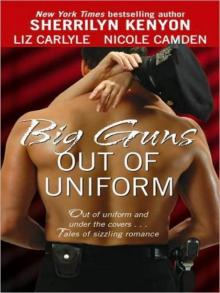 BAD to the Bone
BAD to the Bone Stroke of Midnight
Stroke of Midnight![Dragonbane_[AN_SK] Read online](http://i1.bookreadfree.com/i2/04/12/dragonbane_an_sk_preview.jpg) Dragonbane_[AN_SK]
Dragonbane_[AN_SK] Man of My Dreams
Man of My Dreams